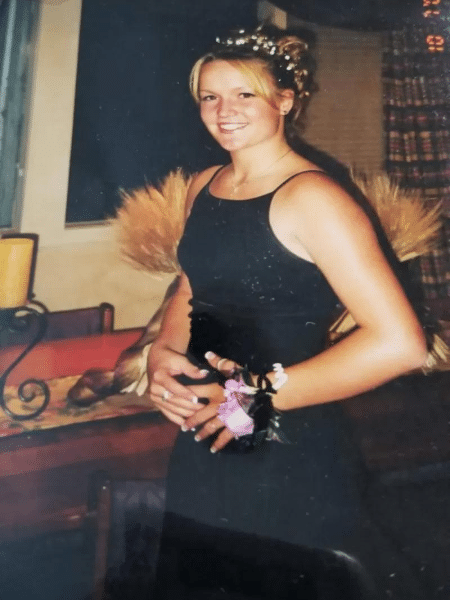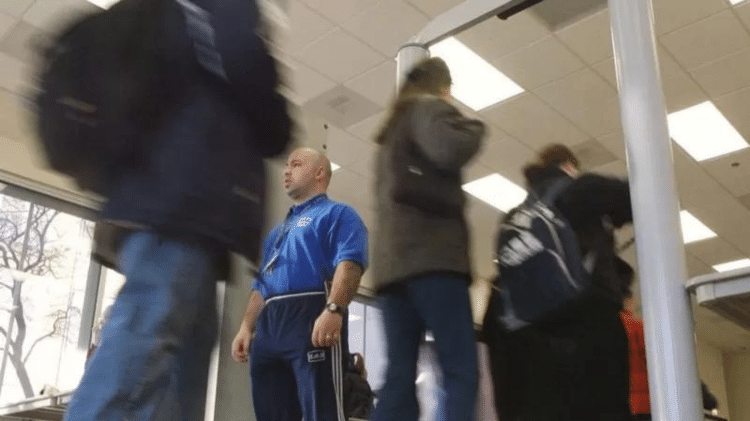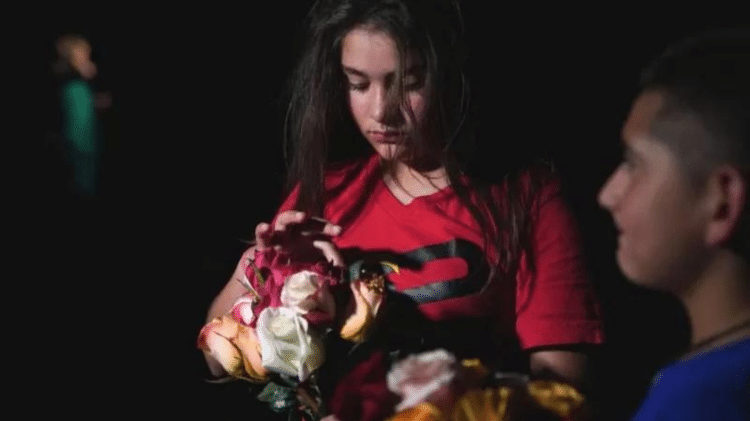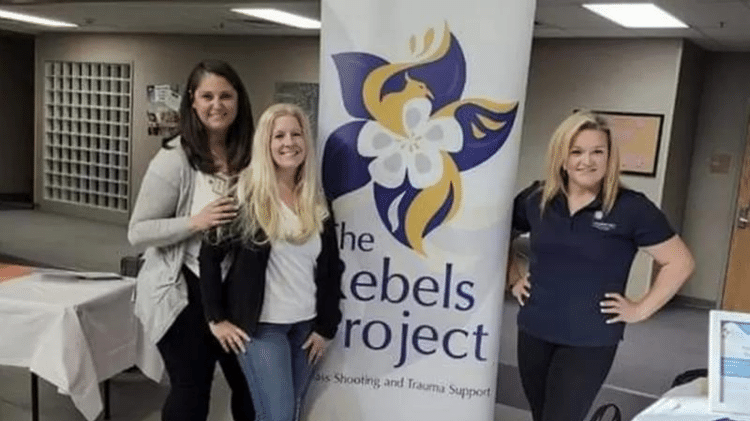Missy Mendo, an American, was filling out documents to enroll her four-year-old daughter, Ellie, in kindergarten when she heard the first information about the massacre at a Texas elementary school on Tuesday, 24/05.
But news that an 18-year-old gunman killed 19 children and two teachers in the small Texas town of Uvalde, considered the deadliest attack on an American school since 2012, caused Missy to stop the mission and bring back memories. Another spring Tuesday in the United States, 23 years ago.
That morning, April 20, 1999, Missy and her classmates at Colorado Columbine High School were brutally stopped by two gunmen who killed 12 students and a teacher before committing suicide in one of the country’s most notorious massacres.
Missy managed to escape without physical injury. But the trauma of that day continues and now that she is a mother, she says her biggest fear is to send her daughter to school.
“It’s the scariest thing for me to think about my daughter’s first day at school,” Missy told BBC News Brazil. “She is the greatest love of my life.”
“And while everything was happening in Texas, parents in Texas had to bury their kids, I was filling out paperwork to enroll my daughter,” says Missy, who lives in Littleton, Colorado.
“How can I continue?” he asks. “Here I am, filing documents and one of my worst nightmares comes true.”
She says she can’t help but think about the parents who lost their children in Texas.
“I know what that community went through[in the hours after the attack],” says Missy, one of the organization’s executives. “I want them to know that I’m here to offer support in the days that follow.” The Rebels Project is a nonprofit created by shooting survivors to support those suffering from similar traumas.
‘They started shooting in our direction’
Missy remembers the horrific moments of the Columbine attack. She was 14 and a freshman in high school, she.
“I was in math class when we heard a loud boom and then an explosion,” he says. “Through the window I could see several students running and crossing a busy street.”
Initially, some at school thought it was a joke. Missy remembers hearing other students yell, “They have guns,” “They have bombs.”
“I ran across the street to a park. While we were there, we saw smoke coming out of the school. Then they (the attackers) started shooting at us.”
A teacher, Dave Sanders, managed to get the students out of the cafeteria, but he returned to help the other students and was killed. Dozens of people hid in the library, where gunmen entered and several claimed dead. More than 20 people were injured.
The Columbine massacre wasn’t the first to happen at a school in the United States, but it did mark the beginning of what many see as a “new era” in this type of tragedy.
The footage was one of the first to receive extensive live coverage from cable TV channels. If until then fathers and mothers in the United States viewed school as a safe place for their children, that changed with images of students running to the shelter to save their lives.
“The internet was in its infancy back then, and people no longer had to sit in the room waiting for news to come in, they could look up stories online,” Missy says.
With the publicity surrounding the case, the two teenagers responsible for the attack rose to fame and the word Columbine became synonymous with the school massacre. In the following years, perpetrators of various other atrocities, some of whom were not born at the time, cited Columbine shooters as inspiration.
The so-called “copycat effect”, in which attackers try to beat the “fame” of previous shooters by killing more people, has prompted experts to urge the press to refrain from unnecessarily repeating the names of those responsible for these attacks.
‘break number’
In the 23 years since Columbine, the United States has become accustomed to such tragedies. Although schools today are better prepared with various safety protocols and training on how to act in an emergency, mass shootings continue to take victims.
A calculation by The Washington Post shows that since Columbine, more than 311,000 students in 331 schools across the country have faced gun violence that has killed at least 185 children and adults.
For Missy and the other survivors, each new attack brings back the memory of Columbine. “The number of mass murders that occurred after (Columbine) is heartbreaking,” he complains. “And some affected me differently.”
It chronicles the 2012 Sandy Hook Elementary School massacre in Newtown, Connecticut, in which 20 children and six adults were killed. “I was living in a nearby town at the time,” Missy recalls.
“(School attack) Marjory Stoneman Douglas was also very difficult for me,” said referring to the 2018 attack in Parkland, Florida, in which a gunman killed 14 students and three school personnel.
Missy also touches on tragedies outside of schools, such as the 2017 Las Vegas music festival massacre, in which 60 people were killed and nearly 900 injured when a gunman opened fire on the crowd.
Several other shooting attacks in schools, supermarkets, shops, churches, nightclubs and other public places have shocked the country over the past two decades. Some had a higher fatality rate than Columbine, including the 2007 Virginia Tech attack in which 32 people were killed. Others, despite their brutality, did not receive as much attention.
Some survivors, including Parkland students, have become activists to try to reform the laws governing gun ownership and possession in the United States.
After such tragedies, discussions about the large number of weapons in the hands of the population often surface in the country. On the one hand, Democratic politicians are demanding greater gun control. On the other hand, Republicans reject any restrictions.
Other survivors, however, choose to avoid the issue that has caused great polarization and face many obstacles to advancing in the Senate, and focus their activism on other measures, such as increasing security in schools.
Missy said she preferred not to comment on gun control, noting that the Rebels Project is not part of any political party and tries to help survivors on both sides of the debate.
Support for other survivors
The project emerged in 2012 after a gunman killed 12 people in a movie theater in Aurora, Colorado. It was then that some of the Columbine survivors decided to form a support group for those affected by this new shooting.
The goal was to offer emotional help as they had experienced a similar situation that many other people could not understand. They did not have access to such support at the time of Columbine and were still living with trauma 13 years later.
Today, the Rebels Project helps survivors of such tragedies connect across the country and abroad.
“We represent more than 100 communities worldwide that have been affected not only by gunfire but also by bombings and other acts of violence,” Missy says. “With the exception of some mental health professionals, all members and volunteers are survivors of different collective tragedies.”
Missy recounts the hardships she faced in the months and years following the Columbine massacre. “It was very difficult to find a therapist who could deal with what we were facing. Back then, there weren’t many specialists in shooting trauma at school.”
She says that she is trying to cope with the trauma on her own, and has never associated problems such as insomnia with the event she experienced at the age of 14. It was only on the 20th anniversary of the massacre that Ellie decided to start therapy after her birth.
Today, at age 38, she is able to use her experience to help other survivors.
“Remember to take it one step at a time for the next few hours, days, weeks, months, and years,” Missy tells Uvalde’s families. “Everyone has a different speed for processing grief.”
“And ask for help, and know that it’s okay to ask for help,” she says. “You are not alone.”
source: Noticias



